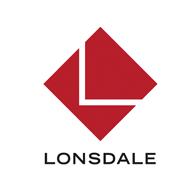
Around this time last year, as with every year, forecasts of how investment markets would perform in 2020, were in abundance. Many prognosticated subdued global growth, with most estimating that 2020 would deliver positive returns, with geopolitical risk the main barrier to global growth.
In Australia, we anticipated muted economic growth at 2 percent and Australian equities were expected to deliver single digit returns with some market volatility expected.
None could have foreseen a global health pandemic that would culminate in the most pronounced economic shock in nearly ten decades.
And, undeterred by the earlier understandably incorrect predictions, many went on to forecast continued market declines as the pandemic unravelled. But as the year ended, the investment market scorecard for 2020 told a quite different story. The ASX closed out 2020 at just 1.4 percent lower than the start of 2020, after capping its best December quarter in history, the S&P 500 delivered an average return of 9 percent and the MSCI All Country World index of global shares was up almost 13 percent higher.
It is obviously no one's fault that most forecasts failed to predict market movements during a global pandemic and history has shown that it is almost impossible to reliably predict events and their impact on markets. But as investors we crave certainty and as humans we try to see order or patterns in what is happening.
In times of severe market disruption 'doing nothing' often feels unacceptable. Surely such market movements means you have to respond.
However, it should be acknowledged that investors effectively made an active decision by doing nothing in response to the ongoing market volatility. Perhaps it was a conscious decision in consultation with your financial adviser, or simply a matter of averting your eyes and focussing more on the challenges of working remotely, home schooling the kids or keeping a small business afloat.
But the last 12 months showed investors that 'doing nothing' and staying the course was the right thing to do by their portfolios. The caveat to that is the assumption that your portfolio has the appropriate asset allocation for your personal risk tolerance and is sufficiently well diversified to both cushion and capture market movements.
A concentrated portfolio in a specific sector would not have enjoyed the same outcomes as the broad market indexes.
Looking to 2021, perhaps we can use the lessons learnt from 2020 to help us navigate the year ahead.
Firstly, practising social distancing with your investment portfolio is a healthy undertaking that we should all implement. By all means, check your portfolio a few times a year and rebalance it if your goals or risk profile have changed. Otherwise, tune out the short-term noise and focus on your long-term investment goals. As vaccine rollouts give us hope that the tide is turning, uncertainty remains about the long-term economic impacts and the only real certainty is that other – as yet unforeseen – events will roil markets.
Secondly, stay cost conscious. The coronavirus pandemic forced changes to household budgets, whether through a necessary tightening of the belt or through limited spending opportunities as a result of lockdowns. But as life returns to COVID normal, perhaps you will consider permanently keeping some items off the shopping list. Even a small reduction has a significant impact over the long term. The same goes for fees incurred on your investments. The more you pay in fees, the less you get to keep. And if you dipped into your superannuation account in 2020, consider directing some household savings to replenish the super portfolio.
Lastly, be prepared for the next bout of volatility. COVID-19 laid bare the truth for many. If the bear market of March 2020 and the subsequent impact to your portfolio felt more like a heart attack than some short term pain, perhaps now is a good time to re-evaluate your investment portfolio and establish if your asset allocation and investment strategy are aligned to your risk profile, investment objectives and investment time frame.
Ultimately, 2020 rewarded disciplined investors for ignoring the noise and staying invested in the financial markets amid the turbulence. And while past performance is no guarantee of future results, conventional wisdom would say that keeping an eye on the long-term and setting realistic expectations for returns will be the best course of action for any investment portfolio in 2021.
An iteration of this article was first published in The Australian Financial Review on 18 January 2021.
19 Jan, 2021
By Robin Bowerman
Head of Corporate Affairs, Vanguard Australia
vanguard.com.au
15th-February-2021 | 


